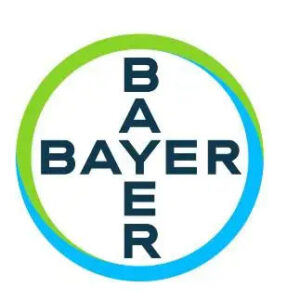- Already successful in the Indian market, Finerenone was first launched by Bayer in India in August 2022 under the brand name Kerendia™
- Sun Pharma to market the drug under the brand name Lyvelsa®
- Despite available treatment options, many patients with chronic kidney disease (CKD) and type 2 diabetes (T2D) progress to kidney failure and premature death
- Based on the results of the clinical trial studies, Finerenone was approved by the S. Food and Drug Administration (USFDA) in July 2021, further granted marketing authorization by the European Commission in February 2022, and subsequently approved in India by the health authority in April 2022
NE BUSINESS BUREAU
MUMBAI & AHMEDABAD, JAN 17
Sun Pharmaceutical Industries Limited and Bayer on Wednesday announced that both companies have signed an agreement to market and distribute a second brand of Finerenone in India. Finerenone, a patented medicine is indicated to reduce the risk of sustained eGFR decline, end-stage kidney disease, cardiovascular death, non-fatal myocardial infarction, and hospitalization for heart failure in adult patients with chronic kidney disease associated with type 2 diabetes mellitus.

Under the terms of the agreement, Bayer has granted the non-exclusive rights to Sun Pharma to market and distribute a second brand of Finerenone under the brand name Lyvelsa®. Finerenone was first launched by Bayer under the brand name Kerendia TM in 2022.
Commenting on this, Shweta Rai, Country Division Head (CDH) for Bayer’s Pharmaceuticals Business in South Asia said, “With the introduction of a second brand of Finerenone in India, through our partnership with Sun Pharma, we are advancing Bayer’s commitment of making healthcare accessible to as many patients as possible. India has a high incidence of diabetes and associated renal and cardiac conditions. The true value of innovations like Finerenone can only be fully realized after they reach all deserving patients.”
Kirti Ganorkar, CEO – India Business, Sun Pharma said, “We are happy to collaborate with Bayer to provide patients access to a new treatment which slows down the progression of chronic kidney disease and reduces the risk of kidney failure associated with Type-2 diabetes. This partnership underscores our commitment to make innovative medicines available to patients in India.”
The Indian Chronic Kidney Disease (ICKD) study identifies diabetes as the leading cause of chronic kidney disease and end-stage kidney disease in India. Over 40% of all patients with diabetes will develop chronic kidney disease. Over 100 million people suffer from diabetes in India, making it an epidemic. The number of people with diabetes in India is the second highest in the world, after China. Despite available treatment options, many patients with chronic kidney disease (CKD) and type 2 diabetes (T2D) progress to kidney failure and premature death.
Finerenone is different from the existing treatments for CKD in T2D patients. It acts by selectively blocking mineralocorticoid receptor (MR) overactivation, which is thought to contribute to CKD progression and cardiovascular damage. The 2023 American Diabetes Association (ADA) guideline recommends the use of Finerenone for individuals with T2D and CKD with albuminuria treated with the maximum tolerated doses of ACE inhibitors/ARB, to improve cardiovascular outcomes and reduce the risk of CKD progression (level of recommendation A).
The pivotal Phase III clinical trial program of Finerenone involving more than 13,000 patients globally was undertaken to investigate the safety and efficacy of kidney and cardiovascular outcomes in patients with chronic kidney disease associated with T2DM. The results show that Finerenone significantly reduced the risk of ≥57% Glomerular Filtration Rate(eGFR) kidney composite outcome by 23% on top of optimised Renin-angiotensin system (RAS) blockade, Finerenone significantly reduced the risk of the composite CV outcome by 14%.
Based on the results of the clinical trial studies, Finerenone was approved by the U.S. Food and Drug Administration (USFDA) in July 2021, further granted marketing authorization by the European Commission in February 2022, and subsequently approved in India by the health authority in April 2022.












